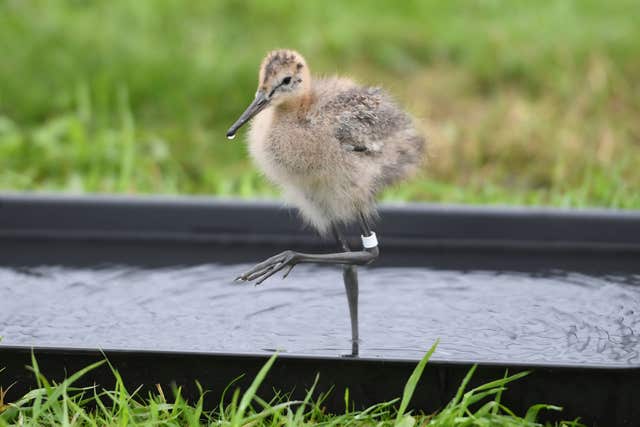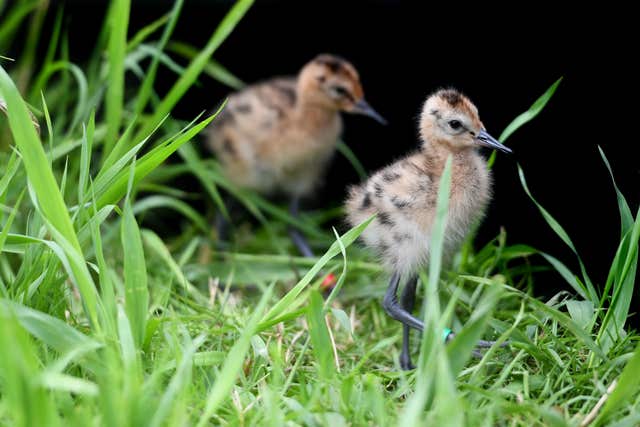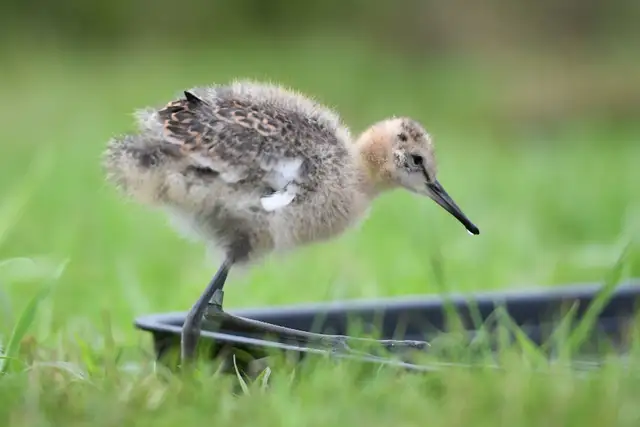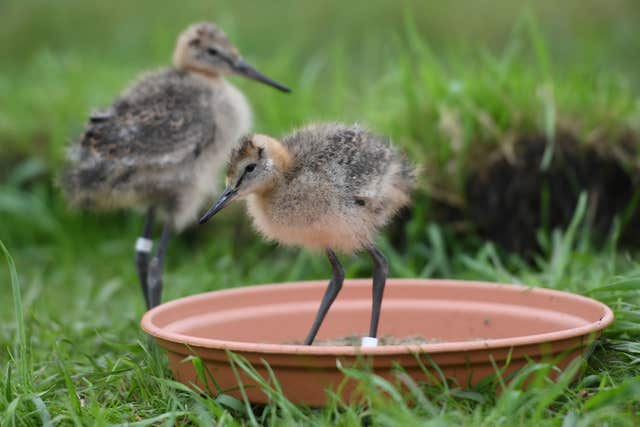
Conservationists who rescued eggs from muddy farmland have helped boost the population of a rare wading bird which is likely to be threatened with extinction in the near future.
There are around 60 pairs of black-tailed godwits in the UK, where they are red-listed by the RSPB and possess Near Threatened status globally.
Flooding forced godwits in East Anglia’s Nene and Ouse Washes, where about 46 of the UK’s 60 pairs can be found, away from the safety of their natural wetland nesting habitat and on to farmland.

Some of the eggs, on land hit by heavy spring downpours, were in “such bad condition that they resembled muddy potatoes”, the Wildfowl and Wetlands Trust (WWT) said.
Conservationists, working with farmers, rescued 32 eggs from the farmland.
The WWT said 42 chicks have hatched so far this year as part of the wider Project Godwit.

The chicks, in rearing pens at Welney Wetland Centre near Wisbech, Cambridgeshire, are now at various stages of development and will be released later this month.
Black-tailed godwits are large wading birds with long beaks and legs, and black and white stripes on their wings.
In summer they have bright orangey-brown chests and bellies, and in winter they appear a greyish-brown.

Project Godwit is a partnership between the RSPB and WWT that aims to secure the future of the birds in the UK.
Numbers declined drastically at the start of the 19th century to the point where black-tailed godwits became extinct as breeding birds in the UK.
The RSPB said this was likely due to the draining of natural wetlands and hunting.

Black-tailed godwits returned to breed in England in the 1930s and started breeding regularly on the Ouse Washes in 1952.
The main threat to the species now is flooding and predators targeting eggs and chicks.
Conservationists have been using a technique known as head-starting – raising young birds from eggs collected in the wild – to help boost the UK godwit population.


Comments: Our rules
We want our comments to be a lively and valuable part of our community - a place where readers can debate and engage with the most important local issues. The ability to comment on our stories is a privilege, not a right, however, and that privilege may be withdrawn if it is abused or misused.
Please report any comments that break our rules.
Read the rules here